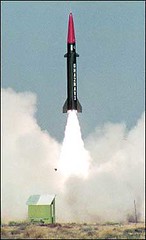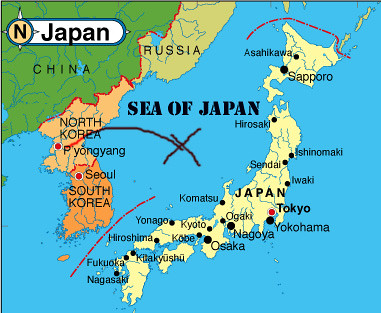North Korean Missile Bullseye Brings Plankton To Negotiating Table
Dead-hit on ocean "a work of the gods," say invertebrates

Kim Jung Il's tenacious hold on missile technology(left) is
responsible for a maritime armistice signed by Plankton(right),
who are said to also be leading Pyongyang officials to rogue
pockets of Sea Monkeys
Pyongyang--The United Plankton Coalition announced today that they "are willing to deal" with the North Korean government, after the regime launched a test missile into the Sea of Japan.
"Once we saw the awesome power of a Sea-of Japan seeking missile, we realized our jig was up," said one senior Plankton representative. "We know when we've been beat, and we got the message."
Analysts say that North Korea's dead-on hit of the Sea of Japan indicates that the regime is "way ahead" of potential rivals in the region.
"We expect a wholesale surrender of substantial marine life in the wake of this," said one analyst. "It is clear that Pyongyang now dominates the uncharted, maritime regions with their nuclear prowess."
North Korean scientists, while impregnably secretive, have noted that their breakthroughs in technology, allowing a tactical missile to zero in on a target as small as the 405,000 square mile body of water, have gained them "huge points" with North Korean dictator, Kim Jung Il.

"The world trembles." North Korean tactical missile
technology has now allowed for a successful, first-strike
test against the hard-to-hit Sea of Japan.
"We have, through theoretically nonviolent means, brought an entire sea of testy pelagic invertebrates to the table, all without having to dispatch the Blue Whale," said one. "Next phase for us will be a bunker buster of sorts--the kind that will have the Gastropods and Porifera knocking at the door of our Great Republic."
The North Korean noted that their "international stock has now gone through the roof," and that "they have the technological means" to bring "any nefarious calamari to their tentacles."
"Mr. Bush, take a hard look at our power," said a spokesman for Pyongyang. "We now own the 19th century."




<< Home